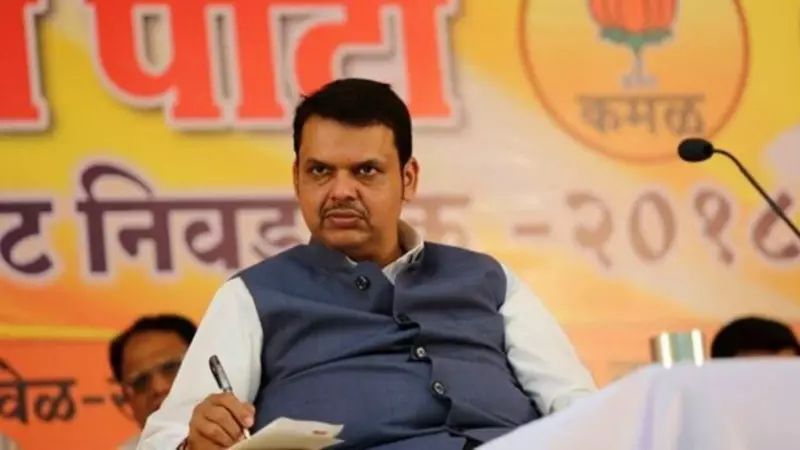
With local government body elections approaching in Maharashtra, Chief Minister Devendra Fadnavis has indicated that the complex picture of political alliances will only become clear after the nomination process concludes. The BJP leader emphasized that his party should explore alliances wherever beneficial, while also remembering that current political opponents were once allies.
Fadnavis Outlines Alliance Strategy
Speaking at the inauguration of the BJP's regional office in Chhatrapati Sambhajinagar's Chikalthana on Sunday, Chief Minister Devendra Fadnavis laid out the party's approach to the upcoming local elections. "We should enter into alliances wherever it is beneficial to us. But at the same time, if an alliance does not materialise, we must remember that the parties currently fighting against us were once our allies," Fadnavis told party workers.
The event was attended by prominent BJP leaders including Raosaheb Danve, minister Atul Save, Pankaja Munde, Meghna Bordikar, and MP Bhagwat Karad. Fadnavis clarified that these being local elections, the decisions regarding alliances and seat distribution are being handled at the district level rather than centrally.
Election Schedule and Localized Approach
The Maharashtra State Election Commission announced the schedule for elections to 246 municipal councils and 42 nagar panchayats in the first week of November. Voting is scheduled for December 2, with counting to follow on December 3.
Fadnavis explained the decentralized approach: "This is not a state assembly election. This is a local election where local units have been asked to decide the candidature." He noted that the Mahayuti alliance is fighting together in some areas, while in others, only two parties are aligned, and in some places, no alliances have been formed at all.
The Chief Minister specifically addressed municipal corporation elections, noting they require different considerations due to their vast jurisdictions. "Here too, wherever possible, alliances will be formed," he stated, adding that exact information about alliances would only be available by Tuesday.
Congress Criticism and Alliance Dynamics
Fadnavis didn't hold back in his criticism of the Congress party, stating that their allegations of vote theft and poll irregularities without submitting evidence to the Election Commission or courts would only lead to more electoral losses. "The Congress must reconnect with citizens and raise real public issues if it wants to revive its political prospects," he asserted, predicting the party would face defeat in the upcoming local elections if they don't improve their approach.
The ruling Mahayuti alliance has already shown cracks, with the BJP and Ajit Pawar's NCP allying while keeping out Shiva Sena led by Eknath Shinde. Interestingly, Deputy Chief Minister Ajit Pawar also held a meeting in Pune last week, asking party leaders to explore possibilities of tie-ups with other parties including the NCP (SP).
Regional Variations in Alliance Formation
The alliance scenario varies significantly across different regions of Maharashtra. In Pimpri-Chinchwad, NCP president Yogesh Behl ruled out any alliance with BJP, while in Dharashiv district of Marathwada region, the Mahayuti is planning to contest unitedly.
Solapur presents a triangular fight with BJP going solo against the powerful Mohite-Patil family, which has controlled the Akluj municipal council without interruption. The ruling NCP has also decided to fight independently in this region.
In Nashik, the BJP is allying with Shinde-led Sena while keeping NCP out. Meanwhile, in Vidarbha's Bhandara, all parties are contesting independently, reflecting the highly localized nature of these elections.
The Congress party has authorized its local units to ally with any party except those from the Mahayuti alliance. Maharashtra Congress chief Harshvardhan Sapkal confirmed that the party has already formed alliances with Prakash Ambedkar-led Vanchit Bahujan Aghadi in Nanded, Chhatrapati Sambhajinagar, Buldhana and with Rashtriya Samaj Party in Satara.
As nominations conclude, the political landscape for Maharashtra's local body elections continues to evolve, with parties maintaining flexibility in their alliance strategies based on local conditions and electoral calculations.





